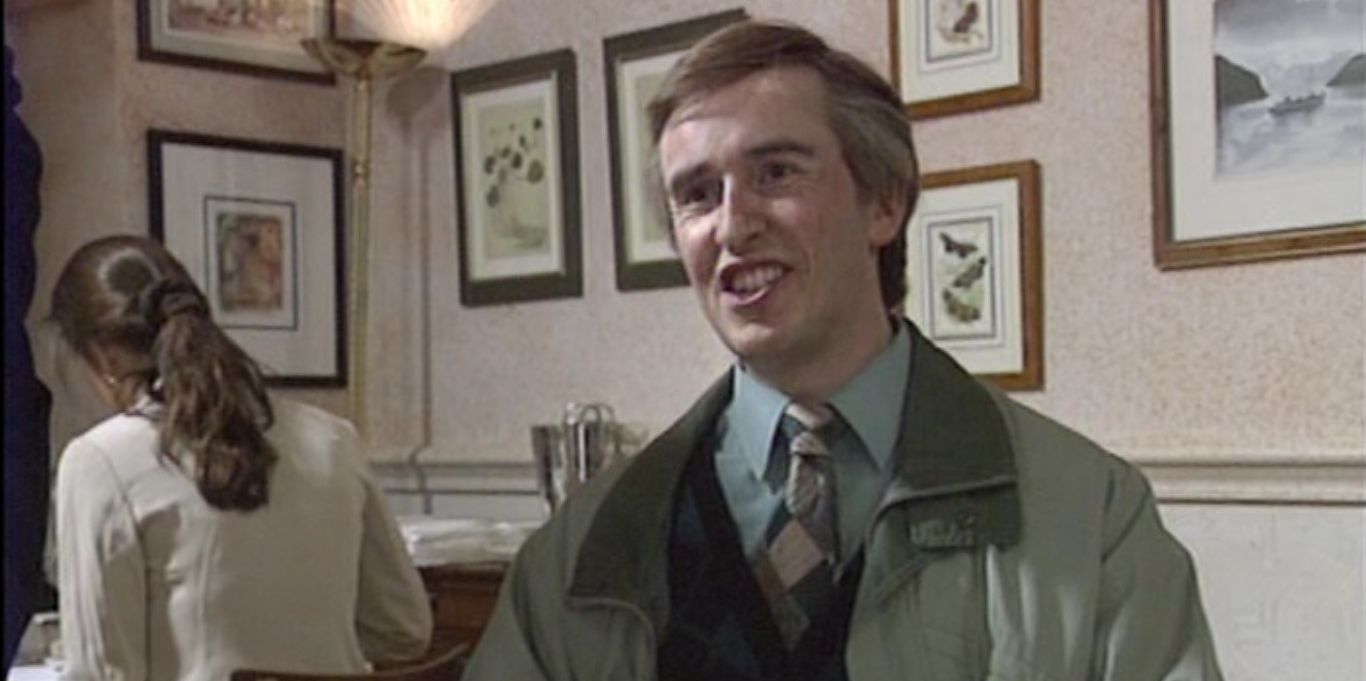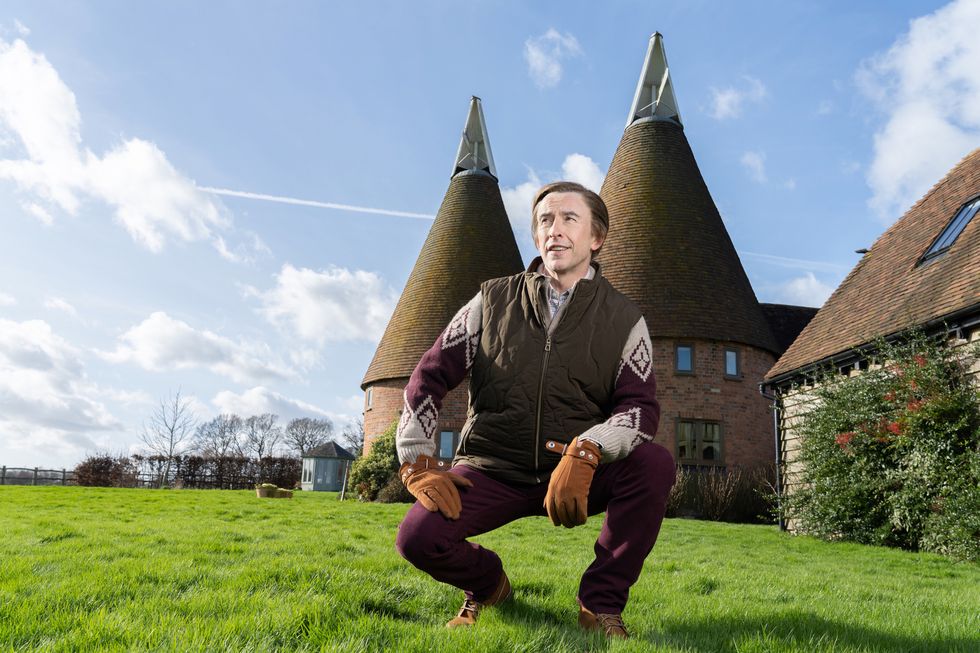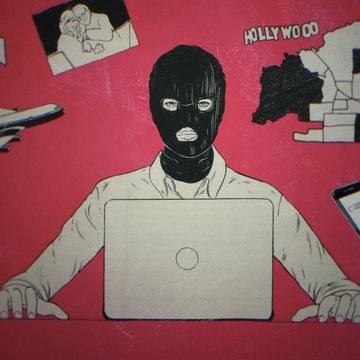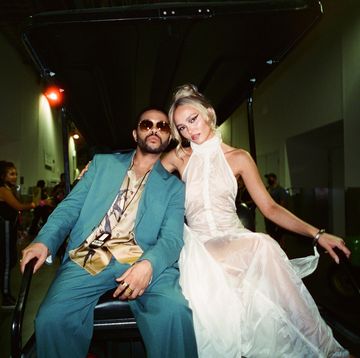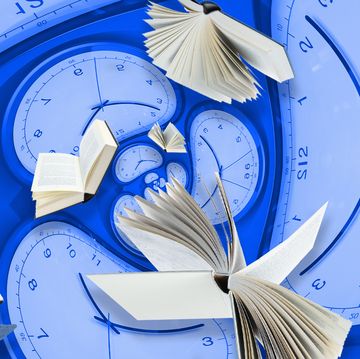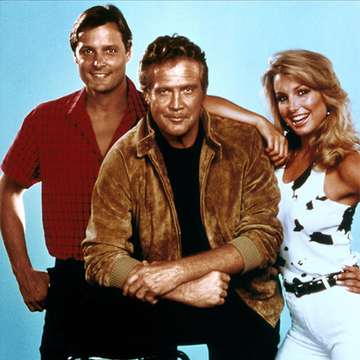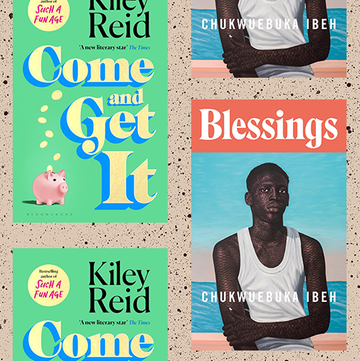Alan Partridge has returned to broadcasting with his first podcast series, From the Oasthouse. We liked it a lot: it's an intense blast of Partridge, exposing all his frailties and petty jealousies as he rambles to himself about everything and nothing. It's easy to believe this would have been a project Partridge started over lockdown to keep himself occupied.
"It has that feel about it, and I think it works well in the middle of the fallout of Covid," Steve Coogan told Esquire over Zoom. "It feels weirdly appropriate."
We went in depth with Coogan on how one of Partridge's most enduring moments – the face-off with BBC commissioner Tony Hayers from I'm Alan Partridge – came together, and how the podcast found previously untapped depths in a character who's been around for nearly 30 years.
Alan used to be an albatross. Now he’s morphed into a battered, comfortable old leather jacket.
I think the BBC thought they were commissioning another series of Knowing Me, Knowing You, and we just decided, without even checking with the BBC, that we’d do a sitcom. They asked, ‘How’s Knowing Me, Knowing You coming along?’ and we said, ‘Oh, we’re not doing that anymore, we’re doing a sitcom’. They were like, ‘Oh, alright’. In those days the BBC just trusted talent to get on with it.
I remember sitting in the writing room with Armando Iannucci and Pete Baynham, an office in Percy Street [in Fitzrovia, London]. Literally two doors down the corridor, Arthur Matthews and Graham Linehan were writing Father Ted. We’d nip into their room to hear what they were writing for Dougal and Ted, and sometimes they’d come into ours and ask what we were writing about Alan and Lynn. They were heady days. At the time, we were the new thing. It was exciting.
Armando was very grown-up about structuring the whole thing, but I think Pete would make me laugh the most. I’d be crying laughing with something he said as Alan. I remember thinking, “I’m so going to enjoy being able to utter those lines.”
Each of us would adopt Alan’s voice. Pete would pretend to be Alan, Armando would pretend to be Alan, I'd pretend to be Alan; it just happened that I was the one that went and dressed up as him and did the show.
I think the lap-dance sequence was my idea. It struck me that, because he’s so straight, anything slightly perverse just seemed funny. Alan has a certain fear about sexuality, and that tapped into that. What I’ve discovered in comedy is if you’re self-conscious, don’t get involved in comedy because you won’t be very funny. Once you get confident in comedy, you realise that doing the most uncool thing conceivable is like a Jedi mind trick. In doing the most uncool thing possible, you become the coolest person in the room. Did I mind cutting holes [in a Pringle sweater] for my nipples to poke through? No, not really. It’s just my job.
It was Pete Baynham who came up with Monkey Tennis, I do remember that. We kept thinking of shorter and shorter pitches and then we thought we should end on a two-word pitch. Two words which conjure up the image immediately. We kicked around ideas, Pete suggested Monkey Tennis, and we fell about laughing.
It was the economy. When you’re writing comedy, the holy grail is to get a big laugh out of the minimum number of components. Monkey Tennis is two words, but it creates an image straightaway, everyone goes, ‘I can see that – don’t know how long it’d last for, but I can totally see that as an image.’
Why’s it endured? The inanity [of the ideas]. All the ideas that are pitched then, more or less, have become a reality. It’s hard to satirise that stuff now because it’s happened.
I was shooting This Time, and I sat in the makeup chair with Lisa Cavalli-Green, who’s the makeup artist. I looked up at her in the mirror and said, “Do you realise we’re the only two people left from the original incarnation of Partridge?” It was just me and Lisa. Everyone else had gone, and new people had arrived. Which I never thought would happen – you feel intimately connected with these writers early on, but now myself and Rob and Neil [the Gibbons brothers] feel like that’s it, the die is cast for the future.
Hugely important though Patrick Marber and Armando Iannucci were at the outset, helping me create the character – Patrick kicked off the match, as it were – Rob and Neil have written more material with me than Armando and Patrick, by this stage. The tone of the character’s changed. The style of the writing has evolved with the new writers who’ve come along.
The process of turning into Alan hasn’t really changed. When we first did the character we decided that Alan would be 10 years older than me, but as the years have gone on we’ve kind of fudged his age a bit. I’m 54, and when I started doing Alan I was 26. We used to use makeup to give me crows’ feet – we don’t bother with that anymore, I’ve acquired them. We glue a wig on, I put slightly stupid clothes on, and then I just get into an Alan frame of mind. Of all things I do, it feels like quite a nice thing to be honest.
The podcast is probably the purest Alan of all. Because it’s the podcast medium, Alan’s unguarded, he’s introspective, and he’s less censorious. He’ll share his innermost thoughts.
You’re not hidebound to make the laughs happen at a certain point. When you’re doing TV stuff and especially when you’re doing live stuff, you need to have punchlines. You need to know that this is the point where all the audience laugh at the same time. You can’t just have a funniness that bleeds through something, because you can’t have people laughing at different times, like a tittering. It’s got to be: boom! Big laugh from the audience, good, that worked, when’s the next big laugh? With a podcast you don’t have that pressure, so you can just let it be whatever it is. One person might laugh at a certain point, someone else might laugh at a different point. You can be a lot more creative and nuanced, and it’s liberating in that regard.
Alan is super-concerned with the way he comes across, like a lot of people who work in television certainly, with what he’s projecting. He doesn’t want to be vulnerable, whereas in the podcast he’s able to make himself more vulnerable, and there’s more pathos, and I kind of like that. There’s a sort of loneliness.
I want lots of people to listen to it. It’s going to be a word-of-mouth thing, but I think it stands comparison with all the best Partridge stuff. We were super-careful with it, we didn’t just toss it out. It’s not like a live podcast where you can just go 'blah blah blah'; we have to write every fucking line. It is crafted. We don’t just turn the microphone on and I start talking. It’s hard work.
From the Oasthouse: The Alan Partridge Podcast is available on Audible now
Like this article? Sign up to our newsletter to get more articles like this delivered straight to your inbox
Need some positivity right now? Subscribe to Esquire now for a hit of style, fitness, culture and advice from the experts
